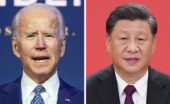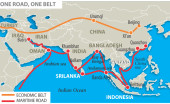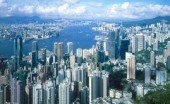Molly Minturn - My family is heartbroken to share that my father died in surgery on Monday, Feb. 10. It…
China – Hong Kong January 2024 –
Written by Diana Thebaud Nicholson // January 6, 2025 // China // Comments Off on China – Hong Kong January 2024 –
Dennis Kwok on the end of democracy in Hong Kong
June 2020
Hong Kong struggles to improve conditions in tiny, crowded homes
Housing is famously cramped in the Asian financial hub of Hong Kong, thanks to sky-high property prices, but a single toilet and kitchen shared by four families would make for a challenging home situation anywhere.
(Reuters) … More than 200,000 people in Hong Kong live in sub-divided flats like hers, often cloaked in a musty odour and plagued by bedbugs during sweltering summers.
The former British colony, ranked as the world’s most unaffordable city for a 14th consecutive year by survey company Demographia, has one of the world’s highest rates of inequality.
In October, Hong Kong vowed to adopt new laws setting minimum space and safety norms for sub-divided flats, where each resident lives in an area of about 65 sq ft (6 sq m) on average, or half the size of the parking space for a sedan.
… Hong Kong aims to eliminate subdivided flats by 2049, a target set in 2021 by China’s top official overseeing the city. Beijing sees the housing woes as a serious social problem that helped fuel mass anti-government protests in 2019.
Authorities plan to boost the supply of public housing to shorten waiting times from as much as 5-1/2 years now, saying they have identified more than enough land to build 308,000 public housing units in the next decade.
2024
31 December/1 Jan 2025
SCMP Editorial | A time for reflection and an opportunity for Hong Kong to turn the page on 2024
There is much work ahead for Hong Kong and the nation in the new year but the challenges can be met with perseverance and optimism
This will be a critical year for China’s economy as Beijing seeks to revive domestic consumption and fuel growth while continuing the transition to technology-driven sectors. The 14th five-year plan ends in 2025. A new blueprint will be drafted this year, setting the future direction.
This is significant for Hong Kong and Macau, too, establishing their role in national development. Hong Kong’s leader, John Lee Ka-chiu, was told by President Xi Jinping that China had very high expectations of the city. Lee faces many challenges as he attempts to boost the economy and improve people’s livelihoods.
Progress has been made since the pandemic. The government highlighted 10 achievements, from passing national security laws to driving tourism, attracting overseas companies and promoting sport.
But there is still much work to be done. Hong Kong must adapt to changing circumstances and identify new engines of growth.
The start of the year is also a time when we celebrate newborns, who represent the future. This reminds us of the numerous social issues to be tackled, from ensuring the well-being of young people to resolving problems arising from the ageing population.
As an international city, Hong Kong must make the best use of its unique features, forging closer ties overseas and developing its role as China’s “superconnector” to the world.
… Relations between China and the United States will, meanwhile, continue to be fraught, with Donald Trump soon to return to the White House. There is a need for political will and wisdom, recognising differences while seeking common ground. …
23 November
China’s crackdown on Hong Kong is a test for Trump
By Josh Rogin
(WaPo) …as many of Trump’s incoming advisers understand, Hong Kong’s fate is tied to the United States’ interests. Trump should realize that his larger China strategy can’t succeed if the United States ignores Hong Kong’s decline.
While Xi was traveling, his proxies in Hong Kong handed down draconian prison sentences to 45 former student leaders, activists and ordinary citizens whose only “crimes” were defending the freedoms Hong Kong had been promised. Hong Kong authorities then turned to the long-awaited public trial of Jimmy Lai, a British citizen who led the city’s largest media company until it was forced to close. Like the student leaders, Lai is being prosecuted under new national security laws in Hong Kong, imposed by Beijing, that have criminalized free expression.
Brazenly, the Hong Kong government invited business leaders from around the world to a financial summit this week to bear witness to these latest attempts to snuff out the city’s once-proud autonomy. The timing of these events is no coincidence. Xi is attempting to create a new frame for the U.S.-China relationship while Washington is distracted by a presidential transition.
Hong Kongers…are pushing for Congress to pass legislation that would place restrictions on Hong Kong’s three…Hong Kong Economic and Trade Offices. An October report by the Hong Kong Democracy Council detailed how these outposts are used to spread Beijing’s propaganda, fund influence networks and surveil the activities of Hong Kongers on U.S. soil.
The legislation was sponsored last year by Sen. Marco Rubio, Trump’s choice to be secretary of state. “Hong Kong unjustly detains political prisoners at a rate only surpassed by a handful of authoritarian countries, such as Belarus, Cuba, and Burma,” Rubio said when introducing the bill. “The [trade offices] are complicit in persecuting them.” Rubio has also sponsored legislation that would grant refugee status to thousands of Hong Kongers who fled the crackdown and are living in the United States without clear immigration status.
Rubio’s nomination, along with the appointment of China hawks — such as incoming national security adviser Mike Waltz — gives Hong Kongers some hope that Trump will view Hong Kong as not just a distraction but as a key to his strategy of confronting China.
18 November
Dozens of Hong Kong Pro-Democracy Leaders Are Jailed Up to 10 Years
The 45 defendants, including Joshua Wong, were at the forefront of the opposition movement crushed by Beijing. Many had already been in jail for years.
Anywhere else, it wouldn’t have been controversial: a public vote by pro-democracy activists trying to strengthen their hand in legislative elections, to decide who should run. More than 600,000 people took part in the peaceful, unofficial poll.
But this was Hong Kong, just after the imposition of a national security law by Beijing, and officials had warned that even a straw poll would be taken as defiance.
On Tuesday, the price of defying Beijing was made clear. Forty-five former politicians and activists who had organized or taken part in the 2020 primary by the opposition camp were sentenced by a Hong Kong court to prison, including for as long as 10 years.
24 July
The noose around the press in Hong Kong tightens
Even advocating press freedom begins to seem a bad career move
(The Economist) THE FIRST press conference Selina Cheng gave as chair of the Hong Kong Journalists Association (HKJA), a trade union, on July 17th, was her last as a reporter for the Wall Street Journal. Ms Cheng says that, shortly after she was appointed, her supervisors at the newspaper ordered her to withdraw, because the two roles were “incompatible” (though her beat was the car industry, not politics), and that when she declined she was fired.
17 July
Wall Street Journal in press freedom row over dismissal of union leader
(Al Jazeera) Cheng said she believes the real reason she was fired was because she was elected president of the Hong Kong Journalists Association last month against the wishes of Wall Street Journal management.
Cheng said her editor asked her to withdraw from consideration shortly before the vote as the post would be “incompatible with her job”.
“The editor said employees of the Journal should not be seen as advocating for press freedom in a place like Hong Kong, even though they can in Western countries, where it is already established,” Cheng said in a statement on Wednesday.
22 July
Hong Kong is global trade hub for world’s most brutal regimes, report says
Pro-democracy campaign group finds exports of goods to Russia, vital to its war efforts, roughly doubled in a year
(The Guardian) Hong Kong has become a global trade hub for “the world’s most brutal regimes”, according to a report examining the city’s role in facilitating the flow of goods to countries under sanctions by the west, including Russia, Iran and North Korea.
A report published on Monday by the Committee for Freedom in Hong Kong Foundation, a campaign group, found that between 2021 and 2022, exports of semiconductors from Hong Kong to Russia roughly doubled to $400m (£310m), second only to shipments from mainland China. Semiconductors are vital to Russia’s war effort as they are a component in weaponry such as drones and cruise missiles.
The report analysed Hong Kong’s exports in a five-month window in 2023, with a particular focus on items from the Common High Priority List (CHPL), a list developed by the US government to identify items sought by Russia for its weapons programme. The researchers found that between August and December 2023, Hong Kong exporters shipped nearly $2bn worth of goods to Russian buyers. Nearly 40% of those exports, by value, came from items on the CHPL, including various categories of semiconductors.
30 May
Hong Kong convicts 14 activists of subversion
(BBC/World) Fourteen pro-democracy activists were convicted in Hong Kong’s biggest national security case on Thursday by a court that said their plan to affect change through an unofficial primary election would have undermined the government’s authority and created a constitutional crisis. After a 2019 protest movement that filled the city’s streets with demonstrators, authorities have all but silenced dissent in Hong Kong through reduced public choice in elections, crackdowns on media and the Beijing-imposed security law under which the activists were convicted. Those found guilty of conspiracy to commit subversion included former lawmakers Leung Kwok-hung, Lam Cheuk-ting, Helena Wong and Raymond Chan, and they could face up to life in prison when sentenced later. The two defendants acquitted were former district councilors Lee Yue-shun and Lawrence Lau. But the prosecution said it intends to appeal against the acquittals.
The 47 Hong Kong activists in the city’s largest national security case
23 March
Hong Kong’s new security law comes into force amid human rights concerns
The law, known as Article 23, has been criticised internationally over fears it could erode civil liberties.
(Al Jazeera) A new national security law has come into force in Hong Kong despite growing international criticism that it could erode freedoms in the China-ruled city and damage its international financial hub credentials.
19-20 March
Tighter security laws may sap yet more foreign investment from Hong Kong
Helen Davidson
Latest legislative crackdown on dissent and international collaboration likely to scare off some businesses, say critics
(The Guardian) Thomas Kellogg, a law professor at Georgetown University, told Bloomberg last month that the provisions on foreign contact could limit the activity of chambers of commerce and economic research groups. “The free flow of information is the lifeblood of any vibrant market economy,” Kellogg said.
Some business groups had expressed particular concern about broad definitions in the new law, particularly around definitions of state secrets and espionage.
Another legal academic, who was formerly based in Hong Kong and requested anonymity, said: “Multinationals in general will now think twice about basing themselves in Hong Kong or moving senior people to Hong Kong, simply because article 23 can be used quite liberally to frame people on the grounds of espionage or theft of state secrets.”
Ian Bremmer: Hong Kong’s new security law ends remaining political independence
… Takes away small remaining vestiges of political independence, none of which people expected were going to be maintained for long. … Hong Kong is no longer a bridge into mainland China. It is now a component of a greater Chinese economy. And to the extent that economy starts turning around and doing better, Hong Kong will do well. It’s not right now, so it’s not performing quite as effectively. And, you know, a lot of the expats have already gotten out of Dodge.
What’s the scope of Hong Kong’s new national security laws?
(Reuters) – Hong Kong on Tuesday passed its new national security law, a bill that broadens the definition of crimes including sabotage, sedition and state secrets, and stipulates tougher penalties of up to life imprisonment.
The law could have implications for many sectors in the global financial hub including business, academia, law, diplomacy and the media, observers say.
The new offences span a number of areas ranging from grave acts affecting sovereignty including insurrection – or initiating armed conflict against a Chinese armed force – to everyday offences including possession of publications deemed seditious. Authorities say the law will apply beyond Hong Kong.
Article 23: Hong Kong passes tough security law fought by protesters for years
(BBC) Hong Kong has passed a tough security law which authorities say is necessary for stability, but which critics fear will further erode civil liberties.
Article 23 targets new offences like external interference and insurrection, and penalties include life sentences.
Article 23 expands on a controversial national security law (NSL) earlier imposed by China.
… But Hong Kong’s leader John Lee has said Article 23 is also necessary to guard against “potential sabotage and undercurrents that try to create troubles”, particularly “ideas of an independent Hong Kong”. He hailed its passing as “a historic moment Hong Kong people have been waiting for over 26 years”.
China’s Vice-Premier Ding Xuexiang earlier said swift enactment of the new legislation would protect “core national interests” and allow Hong Kong to focus on economic development.
Hong Kong passes tough new national security law
Hong Kong has passed a new national security law that critics fear will further erode civil liberties in the China-ruled city.
21 February
Even China’s Giants Are Picking Singapore Over Hong Kong for HQs
(BNN/Bloomberg) The international business community is clear on where it wants to call home in Asia: Singapore.
… Even many Chinese companies seeking to hedge geopolitical risks and broaden their reach pick Singapore over Hong Kong, the report found.
“Hong Kong has lost the race to be international business’ preferred choice for Asia headquarters, as more global and even Chinese companies choose Singapore because of its better relations with the West, broader talent pool, diversified economy, and tax incentives,” according to the 50-page report.
Hong Kong codified its position as China’s finance center by containing political protests and adhering to the country’s Covid-Zero policy during the pandemic, while Singapore highlighted its independence and emerged as the preferred site for international business offices, the report said. Even Hong Kong’s lower standard corporate tax rate of 16.5% may be bested by Singapore programs that can cut its 17% tax rate to 13.5% or less for some activities, it found.
30 January
Hong Kong Expands Its National Security Crackdown
By Selina Cheng
(WSJ via MSN) The new law would expand the definition of national security to include economic matters and define new crimes including treason, foreign interference and seditious intention, according to a framework released Tuesday. The release kicks off a four-week comment period, after which the law will be voted on by the legislature, which is dominated by Beijing loyalists.
The push for the new law comes as Hong Kong struggles to reverse an outflow of businesses and residents following mass protests, a crackdown on dissent and tough pandemic-era restrictions. China is also struggling with a drop in foreign investment and waning business confidence. Concerns include restrictions on data and intelligence that have left foreign executives accused of overstepping the rules.
The Wall Street Journal last week reported that a seasoned British businessman was given a five-year sentence over accusations he provided information to intelligence agencies overseas. Japan said five of its citizens are currently detained by China’s intelligence agencies, including a pharmaceutical executive.
Evergrande collapse means foreign investors in China face even greater uncertainty
Thousands of homebuyers who have paid deposits for homes in China could find their nest eggs at risk after liquidation order
As China’s most embattled – and indebted – property developer is ordered to liquidate, the effects that Evergrande’s collapse will have on investors, debt holders and the hundreds of thousands of homebuyers who have paid deposits for homes remains uncertain.
Evergrande, the Chinese property developer, was worth just $275m on Monday, down 99% from its peak in 2017. It owes more than $300bn to various creditors, according to its most recent financial report.
In a scathing judgment delivered in Hong Kong’s high court on Monday, Justice Linda Chan said “enough is enough”.
23 January
Jimmy Lai: UN experts call for release of Hong Kong newspaper founder
Statement from UN special rapporteurs said they were ‘alarmed’ by violations of Lai’s freedom of expression
Four UN experts have called for all charges against pro-democracy Hong Kong tycoon Jimmy Lai to be dropped, as they pressed for his immediate release.
“Jimmy Lai’s arrest, detention and series of criminal proceedings over the past few years appear to be directly related to his criticism of the Chinese government and his support for democracy in Hong Kong,” the UN experts said.
The statement was penned by the special rapporteurs on freedom of expression, on freedom of association, on degrading treatment or punishment and on the independence of judges and lawyers.
2 January
Jimmy Lai pleads not guilty to all charges at Hong Kong national security trial
Media tycoon and pro-democracy activist is accused of conspiring to commit foreign collusion and publish seditious material



